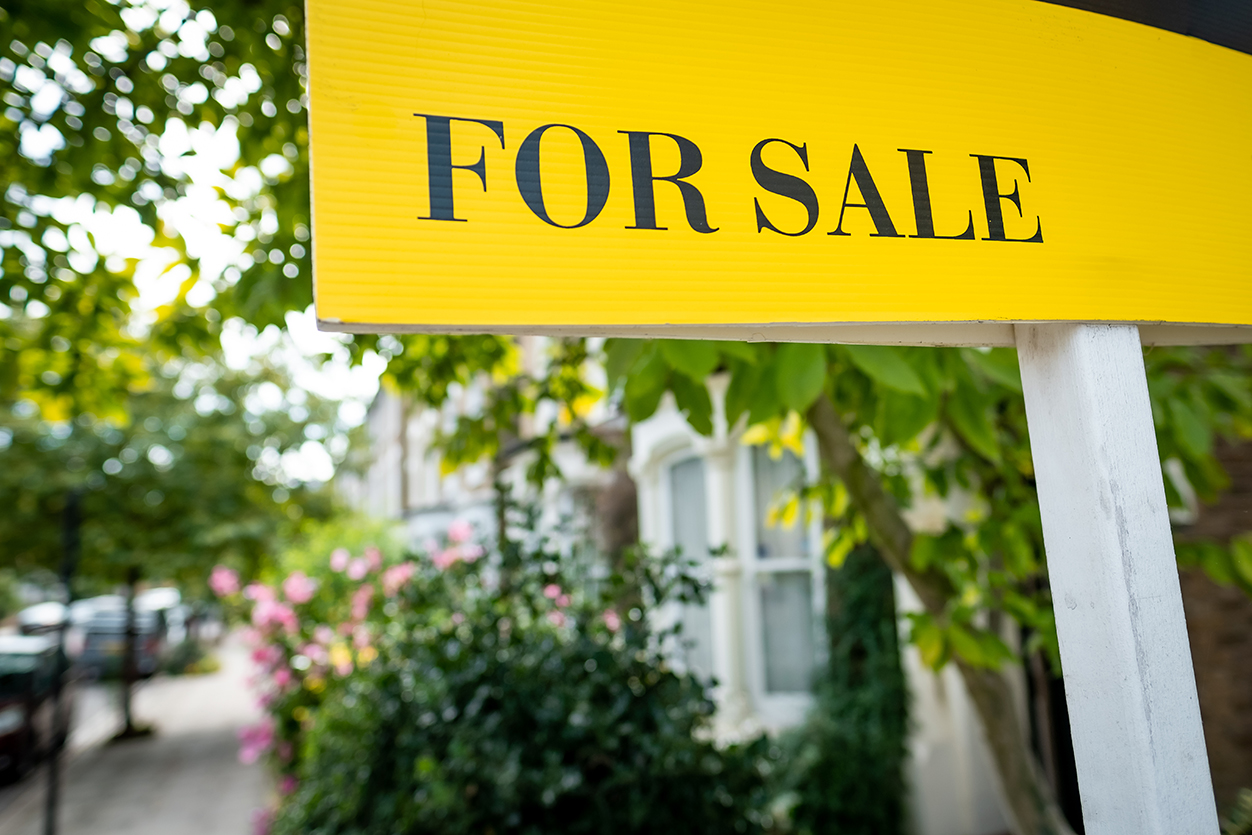Buying or Selling Property with Japanese Knotweed: What You Need to Know
Posted Monday, March 6, 2023

Japanese knotweed is a highly invasive plant species that will remain a problem in the UK for years to come. Whether you are considering a house move, or have jumped in and put your property up for sale it's essential to understand the potential challenges having knotweed growing on your property will bring and take the necessary steps to deal with it effectively.
In this blog, we will cover everything you need to know about selling a house with Japanese knotweed.
What’s the problem with Japanese Knotweed?
You may not be aware that Japanese knotweed is growing on your property, because depending on the time of year, it may or may not be entirely visible. To an untrained eye it can easily get missed and this will have serious consequences when it comes to ticking that box on the TA6 form that asks you whether you have Japanese knotweed;
- Yes
- No
- Not known
To knowingly tick the wrong box could land you in hot water as many legal cases have highlighted in the press. When it comes to Japanese knotweed and the law - pays to be honest!
But if you genuinely don’t know whether you have knotweed on your property what should you do to ensure you get the best price from your sale?
The answer is simply this - get a professional survey carried out by a Japanese knotweed specialist. That way you’ll know which box to tick with confidence and rest assured there will be no legal battles down the line.
What if I have Japanese knotweed?
If you are selling a house that has Japanese knotweed growing on the property, it’s important to consider that it can have a significant impact on the sale process. Many mortgage lenders and insurance companies are reluctant to provide loans or cover for properties that are affected by Japanese knotweed meaning it could be challenging to find a buyer. Even if you’re lucky enough to attract a cash buyer – the issues will remain – how to deal with the knotweed!
If you do manage to sell a property with Japanese knotweed identified, you may find that you receive a lower offer than you expected. This is because buyers will consider the cost of treating or removing the plant and the potential damage it may cause to the property in the future. See our blog “Buying a House with Japanese knotweed: What You Need to Know”.
The answer is to get a Knotweed Management Plan in place – this will reassure any potential purchaser that the problem is under control and will alleviate their fears of putting in an offer.
Take control
If you really want to sell your property, we suggest you get the experts in. The best way to effectively manage Japanese knotweed is to engage the services of a professional and experienced contractor. This will ensure that the plant is properly treated and removed.
Who should I choose?
When choosing a contractor, it's important to verify their qualifications and experience in dealing with Japanese knotweed. Check their reputation on Trustpilot (or similar) before making a decision. It's also essential to ensure that the contractor provides a guarantee for their work, giving you peace of mind and helping to achieve a safe and informed sale.
Conclusion
Selling a house with Japanese knotweed can be challenging, but it is possible with the right approach. By understanding the potential impact on the sale process and taking the necessary steps to deal with the plant effectively, you can ensure a successful sale and avoid any legal or financial difficulties.
Having a pre-sale survey carried out will provide you with the information all buyers will want to see, they can trust you’ve done due diligence and ticked the right box on the PA6 form, and potentially have a plan in place to treat or remove the knotweed.
If you have any questions or concerns about selling a house with Japanese Knotweed, it is always best to seek professional advice from a qualified specialist.
To contact Japanese Knotweed Ltd with a query or to request a free survey, click here.
Buying a property with Japanese knotweed: What You Need to Know
If you are considering buying a property that has Japanese knotweed growing on the property, it's essential to understand the potential challenges and take the necessary steps to ensure that you are making a wise investment. In this blog, we will cover everything you need to know about buying a house with Japanese knotweed and how to ensure that you make a safe and informed purchase.
Understanding Japanese knotweed
Japanese knotweed is a fast-growing, bamboo-like plant that is native to Japan. It was introduced to the UK in the 19th century as an ornamental plant but has since spread throughout the country and has the potential to cause damage to buildings, infrastructure, and the natural environment.
It particularly difficult to control because it spreads quickly, exploiting any weaknesses in structures it can grow through cracks in concrete and asphalt. It also has an extensive rhizome (root) system that can reach up to 3 meters deep.
Should you buy a house with Japanese knotweed?
If you are considering buying a house that has Japanese knotweed growing on the property, there are several potential impacts that you should be aware of.
Firstly, has it been confirmed and declared as Japanese knotweed? Only experts in the field can accurately identify it, and there ae many lookalikes that can easily fool the untrained eye.
Secondly, many mortgage lenders and insurance companies are reluctant to provide loans or cover for properties that are affected by Japanese knotweed. This means that you may struggle to secure the necessary financing to complete the purchase. Speak to your mortgage advisor or lender directly to see how they approach this issue, as not all lenders have the same rules on this.
Thirdly, should you decide to go ahead with the purchase, factor in the cost of removing the plant so that you don’t carry the burden on should you consider selling up in the future. Get several quotes for a survey, as well as starting prices for treatment and removal options. You may not get a full quote at this stage until a survey has been carried out, as full costs depend on the extent and type of the infestation.
Removing Japanese knotweed
The best way to control Japanese knotweed is to have it professionally treated and removed by a specialist contractor. This process can be a long-term option if herbicide treatments are planned (typically 3-5 years) or more quickly eradicated if excavation is decided upon, but it is the only way to ensure that the plant will not return and cause further damage.
When choosing a contractor, it is essential to ensure that they have the necessary experience and qualifications to deal with Japanese knotweed effectively and in compliance with UK legislation. You should also ask for references and check the company's reputation by checking review sites before making a decision.
You could negotiate the Purchase Price
In the UK, it's a legal requirement to disclose any information about Japanese Knotweed when selling a property. However, it's the responsibility of the buyer (and their solicitor) to carry out due diligence and to seek any necessary information about the presence of Japanese knotweed on a property before making a purchase. Always request this information from the seller.
See our blog “Selling a House with Japanese knotweed: What You Need to Know” for more details on what the seller should be doing to attract a sale.
Going ahead with the purchase
If you do then consider buying a house with Japanese knotweed, it is important to negotiate the purchase price with the seller. Given the potential impact that the plant can have on the value of the property, you may be able to negotiate a lower price to reflect the cost of removing the plant or (not advised) the potential devaluation of the property in the future should you choose not to have it treated or removed.
Get a Survey
So, you’ve decided you want to buy the property – but before taking it any further, it is always advisable to have a professional survey carried out. If the surveyor identifies Japanese knotweed growing on the property, or nearby, they will be able to provide advice on the potential impact it may have should you proceed with the purchase, and options to get it under control or completely eradicated.
This information can be used to negotiate the purchase price and to ensure that you are fully aware of the financial implications of buying a house with Japanese knotweed.
Conclusion
Buying a house with Japanese knotweed is possible but can definitely be challenging. First things first – is it Japanese knotweed? Getting it identified is easy via this online ID tool, or you can get a pre-purchase survey carried out by a Japanese knotweed specialist. With the right advice, it is possible to make a safe and informed purchase, it just may take a bit longer!
To contact Japanese Knotweed Ltd with a query or to request a free survey, click here.

